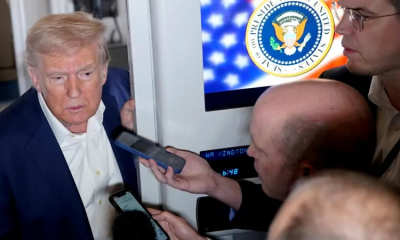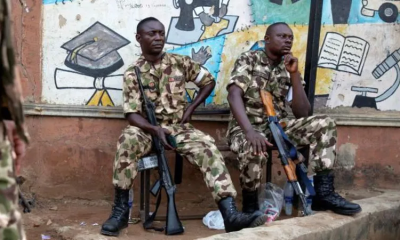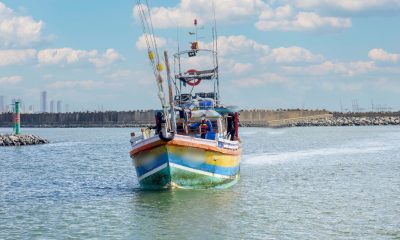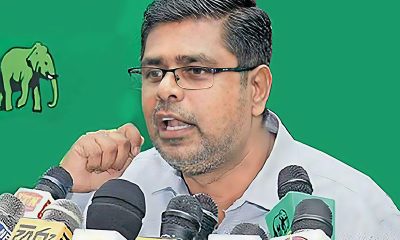News
Ranil rejects Batalanda report wholesale

Former President Ranil Wickremesinghe yesterday rejected the Batalanda Commission report in its entirety.
“I wholly reject the report. No one can say the report was kept hidden. It was published as a sessional paper in 2000, but no one, including the JVP, asked for a debate,” Wickremeisnmghe said in a special statement.
He also said that there was no precedent in this country, or anywhere else in the world, of debating a sessional paper 25 years after it was published.
Making a special statement Wickremeisnghe said: “The Commission has only questioned my action to heed the request by then State Minister of Defence Ranjan Wijeratne to provide accommodation to the security forces which provided security to important state owned institutions in Biyagama during the height of the JVP insurrection of 1987/89.”
He pointed out that the Commission report mentions the heinous terrorist acts committed by the JVP during the 1988-90 period.
“I was only summoned as a witness. According to the Commission’s findings, I was implicated only in the matter of providing housing for police officers, which, as per regulations, should have been done through the Inspector General of Police. The report indicates that both Nalin Delgoda and I were indirectly responsibile for this process.
Apart from this, I was not implicated in any other allegations in the Commission’s report,” Wickremesinghe said.
The former President pointed out that the report was made available to Parliament in 2000, yet no party, including the JVP, requested a debate on it.
The full statement by former President Ranil Wickremesinghe:
In 1987, following the signing of the Indo-Lanka Accord, the JVP launched a wave of terror across the country.
During this period, President J.R. Jayewardene assigned the responsibility of securing key locations in the country to Cabinet Ministers. Several economically significant sites were located in the Biyagama area, including the oil refinery, diesel power plant, the substation supplying electricity from Mahaweli to Colombo, and the free trade zone. The military was deployed to safeguard these locations.
To accommodate security personnel, it was decided to provide them with abandoned buildings and houses owned by the Lanka Fertiliser Manufacturing Corporation. At the time, several employees of the Ceylon Electricity Board were residing in some of these houses.
During this period of terror, the Sapugaskanda Police Station was attacked, and its Officer-in-Charge was killed. In response, Deputy Minister of Defence Ranjan Wijeratne contacted me, requesting that the vacant houses in the complex be allocated to military and police personnel for their security. Consequently, the administrator at the time took steps to hand over the houses to Kelani Police Chief Nalin Delgoda.
Several individuals, including a Provincial Councillor, a cooperative society chairman, and a police sergeant, were assassinated during this period. Additionally, an attack was carried out on the residence of another Provincial Council member.
The government in power took steps to restore the country’s stability, rebuilding the economy and ensuring national security.
After 1994, President Chandrika Bandaranaike Kumaratunga appointed a Commission to investigate allegations of a torture centre in the Batalanda area. Several individuals were summoned before the Commission, and I was called as a witness. At that time, I was serving as the Leader of the Opposition. The establishment of the Batalanda Commission was politically motivated, but the attempt to use it for political gain was unsuccessful.
According to the Commission’s findings, I was implicated only in the matter of providing housing for police officers, which, as per regulations, should have been done through the Inspector General of Police. The report indicates that both Nalin Delgoda and I were indirectly responsibile for this process.
Apart from this, I was not implicated in any other allegations in the Commission’s report. The report also extensively documented the JVP’s terrorist activities between 1988 and 1990, detailing the background and listing numerous violent acts committed by the JVP in Chapter Three. The entire history of those events is included in the report.
Beyond these findings, no other accusations in the report are relevant to me, and I completely reject the report.
No one can claim that the Batalanda Commission report was hidden. It was made available as a parliamentary session record in 2000, yet no one, including the JVP, requested a debate on it. Many did not accept the report, which may explain why no steps were taken to debate it in Parliament.
It is also noteworthy that no political party that came to power has attempted to use the report for political advantage. Furthermore, there is no precedent in Sri Lanka or other parliaments for debating a session record 25 years after its publication.
Latest News
PNB detect large haul of methamphetamine and heroin in local fishing trawler intercepted by Navy
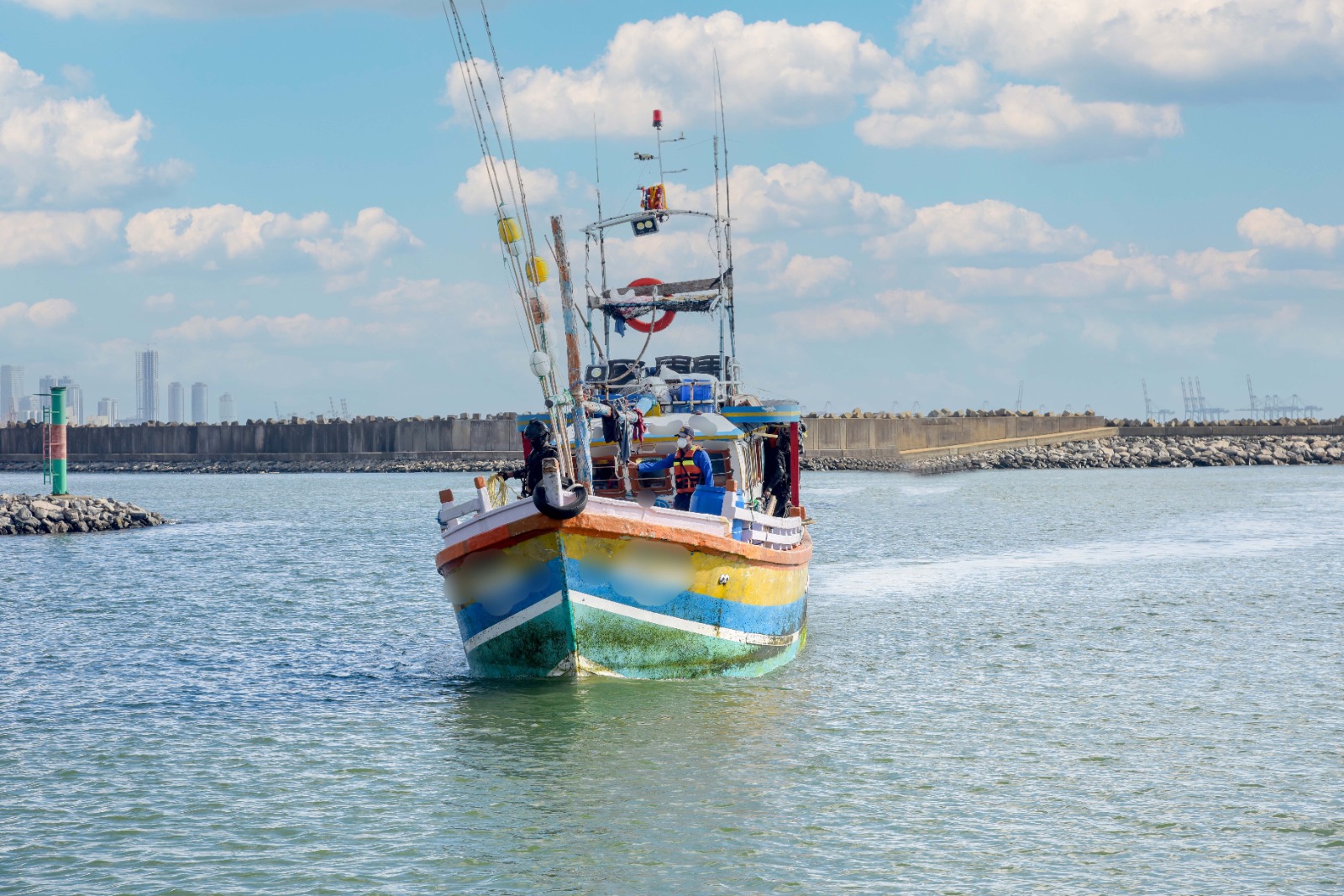
Acting on credible information, the Sri Lanka Navy launched a special operation on the high seas on 11 Apr 25, resulting in the apprehension of 06 suspects along with a local multi-day fishing trawler, believed to be involved in smuggling of narcotics.
Subsequently, the intercepted trawler was brought to the Dikkowita Harbour, where a thorough inspection was carried out with the assistance of the Police Narcotic Bureau (PNB) experts, leading to the detection of approximately 77kg and 484g of heroin and 42kg and 334g of methamphetamine (Ice).
The consignment, which had been meticulously hidden in the trawler, was handed over to the PNB for onward legal action on 12 Apr.
News
Government to initiate new projects to help rural communities to strengthen the national economy – Prime Minister
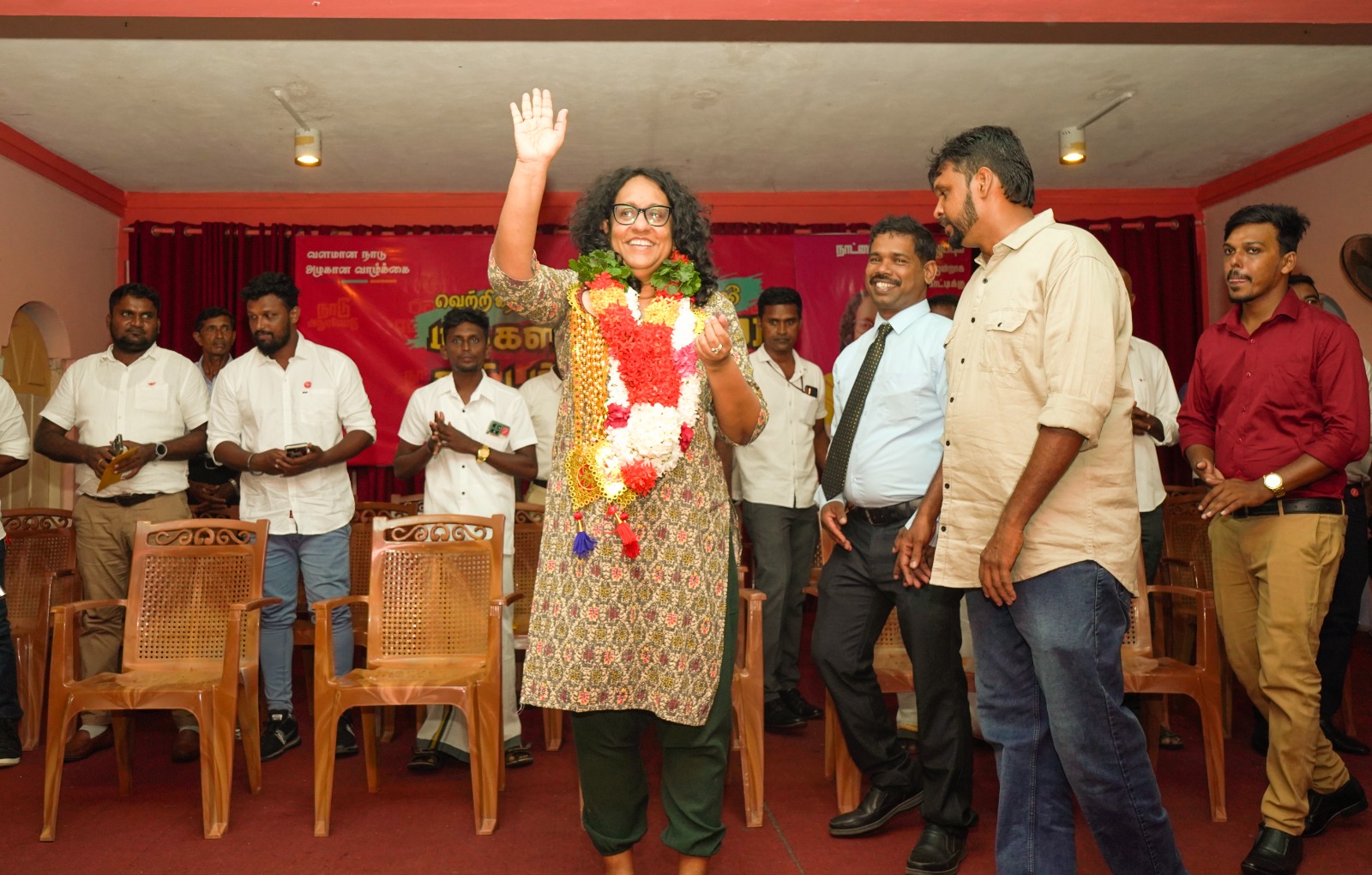
Prime Minister Dr. Harini Amarasuriya stated that the government is currently working to initiate new projects across every area of Sri Lanka and to bring the necessary investments to rural areas in order to improve the participation of the communities in strengthening the national economy.
The Prime Minister made these remarks while addressing a public gathering held on Saturday (12th) in Nanattan, Mannar.
Prime Minister further stated:
“Our country has reached a decisive point. The government of the National People’s Power (NPP) understands the expectations of the people. The general public came together despite the ethnic and religious barriers to exercise their voting right against corruption in politics that existed in this country. Consequently, Anura Kumara Dissanayake was able to become the President in 2024. A month later, we formed a Parliament that will initiate in changing the history. Today, we have a government made up of 159 members. There is now a strong group in Parliament standing against corruption and a government that represents all ethnicities, religions, and regions. For the first time in history, we have formed a government made by a single party that represents everyone. The people are the ones who made this victory possible and they are the true victors in this cause.
We are committed to protecting the trust the people have placed in us and to fulfill their expectations.
You are well aware of how weak the economy was when we came to power. Officially, we had been declared a bankrupt nation before the world. For many years, Sri Lanka had no economic growth and was in a debt-ridden economy. The tourism sector had collapsed. Due to the corruption in political authority, investors were unwilling to invest the country. Today, we have changed all that. We have managed to steer the economy towards growth leading to investments being restored while the confidence in Sri Lanka is increasing internationally.
We are working to start new projects in every area of Sri Lanka to bring the necessary investments to the rural sector, with the aim of improving the participation of rural communities in the national economy.
The first budget of the NPP government has passed. Even though the economy is not yet strong, we focused on two main priorities in the budget: one was to develop infrastructure necessary for economic growth, and the other was to provide relief to people burdened by economic hardships. That’s why we have increased and extended the period of Aswesuma benefits. Further, vouchers to buy schoolbooks was distributed at schools with less than 300 students.
Previous governments were a burden to the people. But today, we have a very small Cabinet of Ministers. The government is no longer a burden to the people. We have reduced expenses, minimized losses, and eliminated corruption.
Because the government is not a burden to the people, it was able to provide relief to the people. Through this budget, the basic salaries of the public service has been increased. They have been given the opportunity to work freely. Decisions are now made on statistical data and not based on political preferences. What we expect is an independent public service. We are in need of a people-centered government as well as a public service which should be an efficient, corruption-free and people-sensitive. We have already created the necessary environment for that.
In order to develop the rural economy, the government has allocated a large amount of funding through this year’s budget. But, to ensure that these allocations are used properly to serve the people, the local government institutions need to be cleaned up. If the leaders who represents the villages are corrupt, the funds allocated will become worthless. That is why the upcoming local government elections has become extremely significant and decisive.”
The event was attended by the Members of Parliament Jegadeeswaran and S .Thilakanadan, public representatives, and candidates of local government election representing the NPP.
[Prime Minister’s Media Division]
News
Batalanda: Why only now and what about the others, asks Mujibur
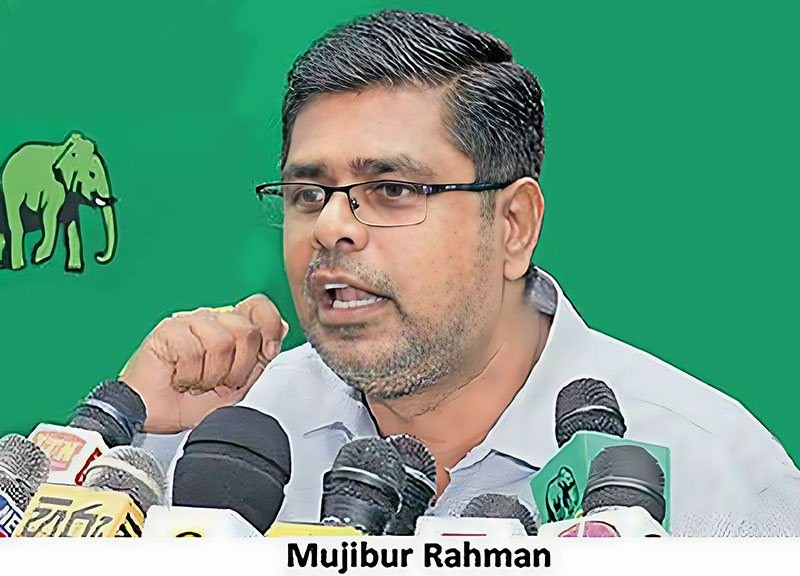
SJB Colombo District MP Mujibur Rahuman launched a fierce critique of the political hypocrisy surrounding the Batalanda Commission report during Thursday’s (10) parliamentary session.
Rahuman pointed to the violent actions of the JVP, which had devastating effects on politicians, police officers, and civilians, as detailed in the Commission’s final report.
He said that the violence had disrupted vital services and created a state of lawlessness, severely affecting the public.
The MP accused political opponents of exploiting the Batalanda issue for electoral advantage, noting that for 36 years, no proposals were made to investigate the assassination of JVP leader Rohana Wijeweera.
He criticized the JVP for forming “probationary” governments with Chandrika Kumaratunga and backing Ranil Wickremesinghe in the yahapalana effort, yet failing to address the Batalanda issue during their tenures.
Rahuman also questioned the current attacks on Wickremesinghe, highlighting that many of his critics had previously collaborated with him. He called attention to the JVP’s statements regarding Gotabaya Rajapaksa’s alleged involvement in a Matale mass grave and the distribution of pamphlets on the subject during the 2022 Galle Face protests.
The MP called for accountability, questioning why no proposals were put forward on these issues when the current government came into power. He also criticized the NPP for its leaders, who, despite being involved in suppressions during the 80s and 90s, now sought positions within the government. Rahuman accused them of hypocrisy, warning against dragging the Batalanda issue into the ongoing election.Rahuman said that the historical wrongs committed by JVP political leaders cannot be erased, regardless of attempts to downplay them.
-

 Business6 days ago
Business6 days agoColombo Coffee wins coveted management awards
-

 News1 day ago
News1 day agoSuspect injured in police shooting hospitalised
-

 Features2 days ago
Features2 days agoRobbers and Wreckers
-

 Features4 days ago
Features4 days agoSri Lanka’s Foreign Policy amid Geopolitical Transformations: 1990-2024 – Part III
-

 Midweek Review4 days ago
Midweek Review4 days agoInequality is killing the Middle Class
-

 Features6 days ago
Features6 days agoSri Lanka’s Foreign Policy amid Geopolitical Transformations: 1990-2024 – Part I
-

 Business1 day ago
Business1 day agoSanjiv Hulugalle appointed CEO and General Manager of Cinnamon Life at City of Dreams Sri Lanka
-
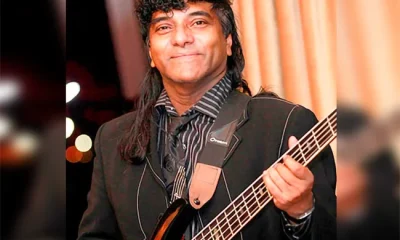
 Features5 days ago
Features5 days agoA brighter future …


